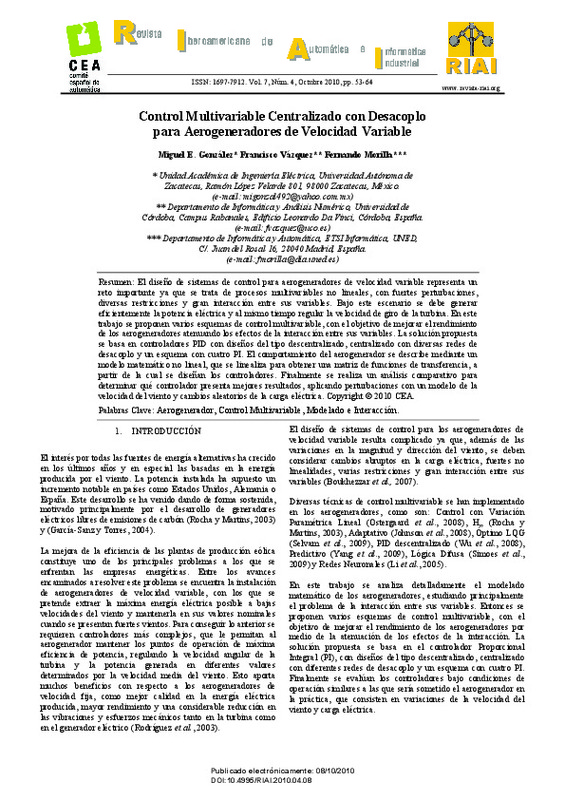JavaScript is disabled for your browser. Some features of this site may not work without it.
Buscar en RiuNet
Listar
Mi cuenta
Estadísticas
Ayuda RiuNet
Admin. UPV
Control Multivariable Centralizado con Desacoplo para Aerogeneradores de Velocidad Variable
Mostrar el registro completo del ítem
González, ME.; Vázquez, F.; Morilla, F. (2010). Control Multivariable Centralizado con Desacoplo para Aerogeneradores de Velocidad Variable. Revista Iberoamericana de Automática e Informática industrial. 7(4):53-64. https://doi.org/10.1016/S1697-7912(10)70060-1
Por favor, use este identificador para citar o enlazar este ítem: http://hdl.handle.net/10251/144516
Ficheros en el ítem
Metadatos del ítem
| Título: | Control Multivariable Centralizado con Desacoplo para Aerogeneradores de Velocidad Variable | |
| Otro titulo: |
|
|
| Autor: | González, Miguel E. Vázquez, Francisco Morilla, Fernando | |
| Fecha difusión: |
|
|
| Resumen: |
[EN] The design of control systems for wind turbine generators of variable speed represents an important challenge since these are nonlinear multivariable processes, with strong disturbances, diverse constraints and great ...[+]
[ES] El diseño de sistemas de control para aerogeneradores de velocidad variable representa un reto importante ya que se trata de procesos multivariables no lineales, con fuertes perturbaciones, diversas restricciones y ...[+]
|
|
| Palabras clave: |
|
|
| Derechos de uso: | Reconocimiento - No comercial - Sin obra derivada (by-nc-nd) | |
| Fuente: |
|
|
| DOI: |
|
|
| Editorial: |
|
|
| Versión del editor: | https://doi.org/10.1016/S1697-7912(10)70060-1 | |
| Tipo: |
|








